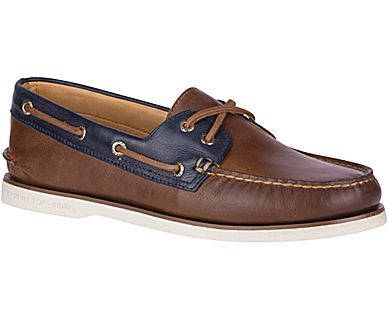Coffee is one of the most popular beverages in the world. It’s also one of the most misunderstood.
You may have heard that coffee is bad for you, but that’s not true. Coffee has been shown to have many health benefits, including reducing the risk of developing certain types of cancer and heart disease, as well as improving cognitive function and memory.
However, it’s important to understand how much coffee you’re consuming and what kinds of coffee you’re drinking—that can make all the difference in whether or not it helps or hurts your health.
Right here on Buy and Slay, you are privy to a litany of relevant information on pros and cons of drinking coffee before workout, the best food to eat before a workout, when is the best time to drink coffee?, and so much more. Take out time to visit our catalog for more information on similar topics.
Black Coffee After Workout For Weight Loss

Many of us love coffee for the instant burst of energy granted by caffeine. After all, it’s a lifesaver on those lazy weekday mornings or while pulling all-nighters to meet a deadline. This energy boost may make you consider, should you drink coffee before or after a workout? You might think coffee is only to be drunk before working out, but let’s consider both sides and we could uncover some surprising benefits of drinking coffee after a workout.
Coffee And Exercise
If you take workout supplements, you may notice that many of them contain caffeine. This is obviously because of the energy-boosting effects of caffeine. Caffeine can also improve reaction time which is important if you play sports as a workout. Conversely, excess caffeine can make you anxious, jittery, and unable to sleep. Why does this happen?
These effects, both good and bad, are primarily due to the relationship between caffeine and cortisol. Cortisol is a hormone produced in the body that makes you more alert, more focused, and also raises blood pressure and metabolism. Cortisol levels are heightened by both emotional and physical stress, so it’s often referred to as the stress hormone.
Caffeine increases cortisol levels, which can be good or bad. If you have medical conditions that affect blood pressure or anxiety, this might not be the best combination for you. However, if you want to boost your metabolism post-workout or have more energy to go the extra mile, caffeine can boost the effectiveness of your workouts.
When Should You Drink Coffee?
Most of us are used to having coffee first thing in the morning, before or during breakfast. Coincidentally, this is also when cortisol levels are high. Cortisol levels rise just after waking up and peak a few hours after awakening. This should help you decide when to have your morning coffee- if you’re more vulnerable to the anxiety-inducing effects of caffeine, then delay your morning coffee so it doesn’t merge with a natural cortisol spike.
Mid-afternoon might be the best time to drink coffee. It’s after the morning cortisol spike, prevents an afternoon slump, and is not so late that it disrupts your sleep cycle.
Should You Drink Coffee Before or After Working Out?
You don’t need to drink coffee before a workout to have a good one but it does help. Caffeine has been shown to improve physical performance, circulation, metabolism, and exercise tolerance. This could help you work out longer or harder without getting fatigued too soon and can also boost calorie-burning during and after working out. However, you should be careful not to drink coffee too close to a workout since it can also cause gastrointestinal issues. If you exercise at night, then caffeine may not be an option at all.
Most of us don’t even stop to consider drinking coffee after a workout. After all, the hard part is over, right? Well drinking coffee after a workout can actually help in a lot of ways, perhaps even more than drinking it simply for energy before exercise.
Benefits Of Drinking Coffee After a Workout
Here are some great benefits of drinking coffee after a workout:
1. Faster muscle recovery
Muscle recovery depends on a compound called glycogen, which is naturally increased when you consume caffeine. Glycogen is what gives muscles energy and it needs to be replenished after a workout to prevent soreness and stiffness. For best results, combine your coffee with some carbohydrates.
2. Burn more calories
Caffeine speeds up your metabolism and so does exercise. By drinking coffee after a workout, you can prolong this metabolic boost and burn more calories, which is great if you’re exercising to lose weight.
3. Increase fat breakdown
Caffeine increases adrenaline in the body, which signals the body to break down and metabolize fat cells. Again, this is great if you’re trying to lose weight or reduce your body fat percentage.
All in all, caffeine is a great fitness tool both before and after a workout. Don’t go overboard though, either have it before working out or after, but not both! Consuming that much coffee combined with the cortisol spike of exercising can make you jittery, anxious, and unable to sleep.
All things in moderation is the key to fitness. And of course, if you want to meet your fitness goals you should skip sugary, creamy coffee and opt for something simple like black coffee or low-calorie coffee drinks without lots of milk and cream.
Pros And Cons Of Drinking Coffee Before Workout
Your alarm is blaring. It’s 6:30 a.m. and you booked a 7 a.m. spin class. You’ll be charged $20 if you skip it. Ugh, fine. There is one thing that could make this whole situation a little more tolerable, though: coffee.
But is it advisable to drink coffee before a workout? The short answer is yes. We’ll hedge all of this information with the reminder that water is the most important beverage before, during and after a sweat session. While coffee is typically totally fine—even beneficial—before exercising, you shouldn’t go right back to it after you leave the gym. Why? According to personal trainer David Middleton from Punch Run Lift, “I see a lot of people reaching straight for a coffee after a workout and that’s a big no-no from me. Rehydrate your body with water first before any caffeine.” OK, got it. Now let’s get back to the pros and cons of having coffee before working out, shall we?
PROS OF DRINKING COFFEE BEFORE WORKING OUT
1. IT COULD ENHANCE YOUR PERFORMANCE
According to a review of studies by the International Society of Sports Nutrition, caffeine is an effective ergogenic aid for sustained maximal endurance activity, and has also been shown to be very effective for enhancing time trial performance. (Translation: Caffeine is an effective tool for helping you work out better and longer.) Timing matters, though. Caffeine’s effects on the body typically peak about one to two hours after you drink it, meaning you should aim to start your workout 45 to 60 minutes after downing a cup of joe to reap the maximum benefits.
2. IT COULD HELP YOU FOCUS
A natural stimulant, caffeine has been shown time and time again (in studies like this one from the journal Psychopharmacology) to boost mental focus, alertness and general cognitive function. If you’ve ever half-assed your way through a slow-flow yoga class, you might benefit from the added concentration a cup of coffee can provide. Note that for many people there’s a thin line between harnessing caffeine’s focus-boosting powers and feeling jittery and anxious, so don’t chug five shots of espresso and expect to turn into Serena Williams—the normal amount of coffee your body is used to will suffice.
3. IT COULD MAKE YOU ENJOY YOUR WORKOUT MORE
OK, so this one isn’t super well researched, but one small study at Queensland’s Griffith University found that drinking caffeine before and after moderate exercise increased EE (energy expenditure) while improving exercise enjoyment. It’s a small study, sure. But hey, we’ll take it.
4. IT COULD REDUCE MUSCLE PAIN
According to a University of Rhode Island study, caffeine significantly reduced post-workout muscle soreness when compared to a placebo. The participants drinking coffee before doing upper-body weight training were also able to complete more reps on their final set. Results indicated that drinking caffeine before intense training improves athletic performance and lessens the amount of time for muscle recovery.
CONS OF DRINKING COFFEE BEFORE WORKING OUT
IT MIGHT NOT BE SMART FOR EVENING EXERCISERS
In many cases, coffee can be a welcomed addition to a fitness routine. One exception? If you’re someone who works out late at night. It’s generally agreed upon that you should stop drinking caffeine four to six hours before going to bed (there are obviously those unicorns who can end the night with an espresso and sleep like a baby, but you get it). Also, obviously, if you’re someone who has a rocky relationship with coffee for whatever reason, skip it and opt for caffeinated tea (plus water) instead.
The Best Food To Eat Before A Workout
Now that we’ve determined what to drink before a workout (water! coffee!), let’s chat food. Here are four expert-approved pre-workout snacks to try.
1. PEANUT BUTTER TOAST
“Have a slice of whole-wheat bread or a banana with a spoonful of peanut or almond butter for an excellent combination of both carbs and protein before your workout,” says sports dietitian Angie Asche. The carbohydrates will give you energy while protein helps muscle growth. Top tip: Go for nut butters that list only “peanuts” or “almonds” on the jar to avoid unnecessary sugars and oils.
2. GRAPES AND CHEESE
“Fruit contains energy-boosting carbohydrates that are easy to digest and enjoy,” nutritionist Lindsey Joe explains. “They’re also full of satiating fiber and phytochemicals.” (Hey, it’s hard to focus on doing one more lap when your stomach is rumbling like a lawn mower.) Her go-to pre-workout snack is a handful of grapes with some low-fat string cheese, or clementine oranges with a few unsalted nuts.
3. BANANAS
“Bananas are loaded with carbohydrates and potassium, and make excellent snacks before a workout,” Asche tells us. Like protein shakes, they’re also an excellent way to fuel up on the go.
4. SWEET POTATOES
“Sweet potatoes are rich in potassium, vitamin A and carbohydrates, and make a great source of fuel pre- or post-workout,” Asche says. But they’re also pretty filling, so this one’s best enjoyed one to two hours before a workout. (And, you know, maybe save the sour cream and cheese for a post-workout reward.)
WHAT’S THE BOTTOM LINE?
All of this is to say that, as long as you’re drinking plenty of water—regardless of your exercise regimen—a cup of coffee before your next workout is not only safe, but it could actually help you work out harder and longer. Remember the caveat about evening workouts (we don’t want you staying up all night, after all).
When Is The Best Time To Drink Coffee?

Coffee is one of the world’s most popular beverages. It contains a very popular stimulant called caffeine.
Many people reach for a cup of this caffeinated beverage immediately after rising, whereas others believe it’s more beneficial to hold off for a few hours.
Cortisol and coffee
Many people enjoy a cup — or three — of coffee upon rising or shortly thereafter.
However, it’s thought that drinking coffee too soon after rising decreases its energizing effects, as your stress hormone cortisol is at its peak level at this time.
Cortisol is a hormone that can enhance alertness and focus. It also regulates your metabolism, immune system response, and blood pressure.
The hormone follows a rhythm specific to your sleep-wake cycle, with high levels that peak 30–45 minutes after rising and slowly decline throughout the rest of the day.
That said, it has been suggested that the best time to drink coffee is mid- to late-morning when your cortisol level is lower.
For most people who get up around 6:30 a.m., this time is between 9:30 and 11:30 a.m.
While there may be some truth to this, no studies to date have observed any superior energizing effects with delaying your morning coffee, compared with drinking it immediately upon rising.
Another reason why it has been suggested that you should delay your morning coffee is that the caffeine from coffee can increase cortisol levels.
Drinking coffee when your cortisol level is at its peak may further increase levels of this hormone. Elevated levels of cortisol over long periods can impair your immune system, causing health problems.
Still, there have been no long-term studies on the health implications of elevated cortisol from drinking coffee.
Moreover, caffeine-induced increases in cortisol tend to be reduced in people who regularly consume caffeine.
That said, there’s likely no harm if you prefer to drink coffee upon rising rather than several hours thereafter.
But if you’re willing to change up your morning coffee ritual, you may find that delaying your coffee intake a few hours may give you more energy.
SUMMARY
The best time to drink coffee is thought to be 9:30–11:30 a.m. when most people’s cortisol level is lower. Whether this is true, remains to be determined. Caffeine can increase cortisol, but the long-term health implications of this are unknown.
Coffee can boost exercise performance
Coffee is known for its ability to promote wakefulness and increase alertness, but the beverage is also an effective exercise performance enhancer because of its caffeine content.
Plus, coffee can be a much cheaper alternative to caffeine-containing supplements like pre-workout powders.
Several studies have demonstrated that caffeine can delay exercise fatigue and improve muscle strength and power.
While it may not make a significant difference whether you choose to enjoy your coffee upon rising or several hours thereafter, the effects of the caffeine from coffee on exercise performance are time-dependent.
If you’re looking to optimize coffee’s beneficial effects on exercise performance, it’s best to consume the beverage 30–60 minutes before a workout or sporting event.
This is the time it takes caffeine levels to peak in your body.
The effective dose of caffeine for improving exercise performance is 1.4–2.7 mg per pound (3–6 mg per kg) of body weight.
For a 150-pound (68-kg) person, this equates to about 200–400 mg of caffeine, or 2–4 cups (475–950 mL) of coffee.
SUMMARY
The exercise performance benefits of caffeine from coffee can be experienced within 30–60 minutes of drinking the beverage.
Anxiety and sleep problems
Caffeine in coffee can promote wakefulness and increase exercise performance, but it can also cause problems with sleep and anxiety in some people.
The stimulating effects of caffeine from coffee last 3–5 hours, and depending on individual differences, about half of the total caffeine you consume remains in your body after 5 hours.
Consuming coffee too close to bedtime, such as with dinner, can cause sleeping problems.
To avoid caffeine’s disruptive effects on sleep, it’s recommended to avoid consuming caffeine for a minimum of 6 hours before bed.
In addition to sleep problems, caffeine can increase anxiety in some people.
If you have anxiety, you may find that drinking coffee makes it worse, in which case, you may need to consume less or avoid the beverage completely.
You can also try switching to green tea, which contains one-third of the caffeine in coffee.
The beverage also provides the amino acid L-theanine, which has relaxing and calming properties.
SUMMARY
Caffeine can cause sleep problems when it’s consumed too close to bedtime. The stimulant may also increase anxiety in some people.
How much coffee is safe?
Healthy individuals can consume up to 400 mg of caffeine daily — the equivalent of about 4 cups (950 mL) of coffee.
The recommendation for pregnant and nursing women is 300 mg of caffeine daily, with some research suggesting that the safe upper limit is 200 mg daily.
These recommendations for safe caffeine intake include caffeine from all sources.
Other common sources of caffeine include tea, soft drinks, energy drinks, and even dark chocolate.
SUMMARY
Healthy adults can consume up to 400 mg of caffeine per day, whereas pregnant and nursing women can safely consume up to 300 mg per day, with some research suggesting that 200 mg is the safe limit.
The bottom line
Coffee is a popular beverage that’s enjoyed throughout the world.
It has been suggested that the best time to drink coffee is mid- to late-morning when your cortisol level is lower, but research on this topic is lacking.
Consuming coffee 30–60 minutes before your workout or sporting event can help delay fatigue and increase muscle strength and power.
Keep in mind that the stimulating effects of caffeine from coffee can cause sleep problems if consumed too close to bedtime, as well as increase anxiety in some people.



